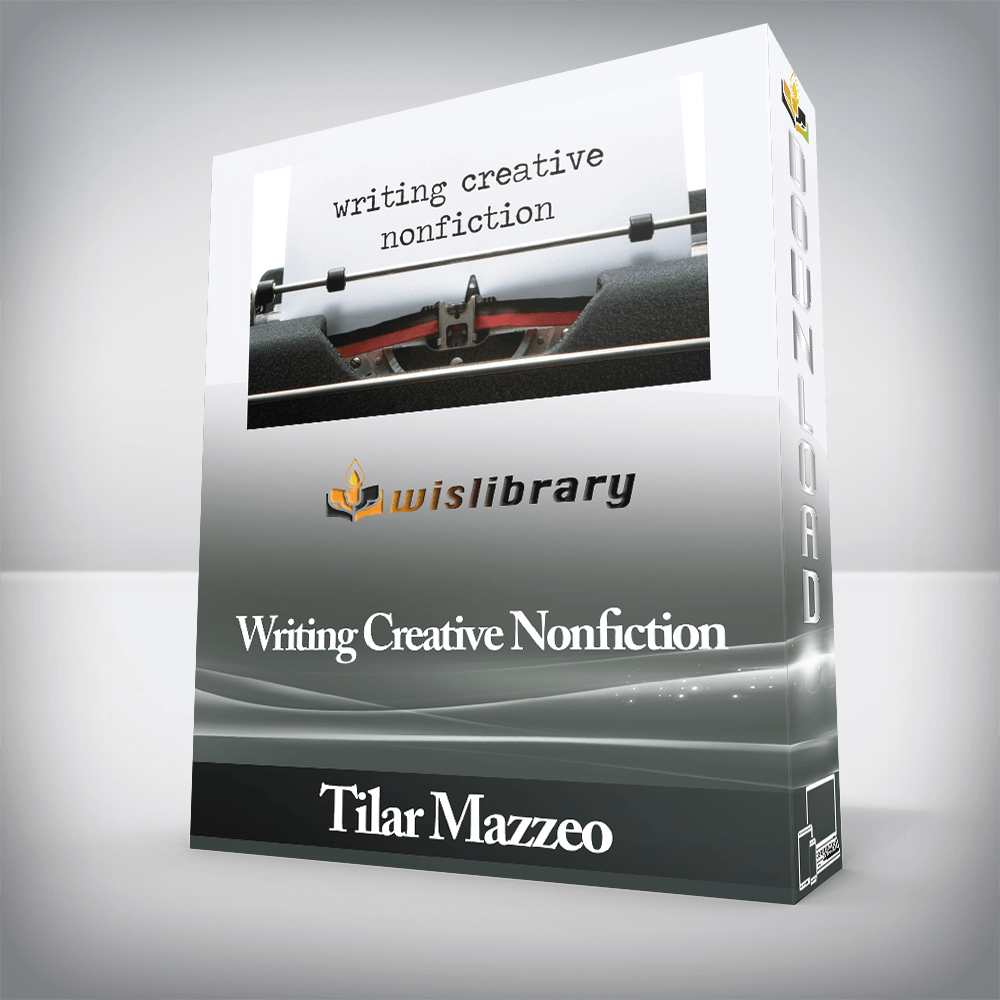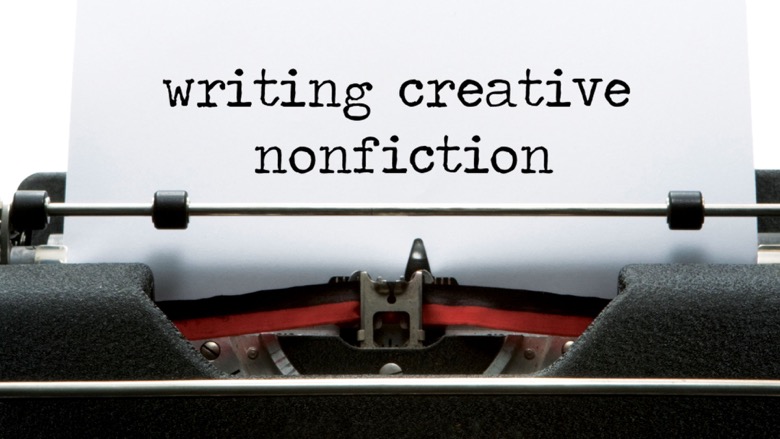


The wonderful thing about creative nonfiction is that from the same facts, we can tell hundreds of different stories. Everyone has a different perspective; simply changing the focus on the imaginary lens changes the story.
Institution: Colby College
Alma mater: University of Washington
We all have a story we want to share with others. Maybe it’s a funny or dramatic moment in your everyday life. Perhaps it’s an unforgettable trip overseas or a heartwarming family reunion. Or possibly even the life of a close relative or public figure that has inspired you in some unique way. Regardless of the story or experience, there’s no better way to write, record, and share it than through the power of creative nonfiction.
Bringing together the imaginative strategies of fiction storytelling and new ways of narrating true, real-life events, creative nonfiction is the fastest-growing part of the creative writing world—and the fastest-growing part of the market for books as well. It’s a cutting-edge genre that’s reshaping how we write (and read) everything from biographies and memoirs to blogs and public speaking scripts to personal essays and magazine articles.
But learning the secrets and techniques of creative nonfiction offers you so much more than just insights into this exciting style of writing. Mastering the art and craft of creative nonfiction can
Whether you’re looking to launch into a new professional career as a creative nonfiction writer, dabble in the genre as a pastime, start a personal blog, or simply get inside the mind of a creative nonfiction writer at work, you’ll find much to learn from and enjoy in Writing Creative Nonfiction. These 24 lectures by award-winning writing instructor and Professor Tilar J. Mazzeo of Colby College, a New York Times best-selling author, are a chance for you to explore the entire process of writing creative nonfiction, from brainstorming for the perfect idea to getting your final product noticed by literary agents and publishers. Filled with helpful tips and techniques, memorable examples from well-known writers, and engaging exercises, it’s a learning experience that proves that—with the right instructor—writing creative nonfiction can be mastered, practiced, and enjoyed by anyone with a desire to share his or her personal story.
Explore All Aspects of the Creative Nonfiction Craft
More dynamic than a simple how-to writing guide you could find in a bookstore, Professor Mazzeo’s interactive lectures are a chance for you to learn right alongside a master professor and best-selling writer as she guides you through all aspects of the process.
Learn Tricks of the Creative Nonfiction Writer’s Trade
“I’m an English professor and a writer myself,”notes Professor Mazzeo at the start of her course. “And what I can tell you is that there are tricks of the trade; things that published writers—the people whose books you’ve read and enjoyed and recommended to friends—learn from doing over and over.”
Every lecture of Writing Creative Nonfiction is filled with these tricks of the trade; nuggets of information, insight, and advice that you can learn from and use whenever you sit down to tell a personal story. Whether you’re planning on tackling a memoir, a piece of travel writing, a personal essay, or nearly any project in which effective (and truthful) storytelling is required, these and other tips and tricks revealed in this course will go a long way toward building a powerful toolkit you can use any time you sit down to write.
Practice with Exercises Crafted by a New York Times Best-Selling Author
With Writing Creative Nonfiction, you’re not just learning from a dynamic writing instructor. You’re learning from a prolific nonfiction writer whose books—including the New York Times bestseller The Widow Cliquot: The Story of a Champagne Empire and the Woman Who Ruled It—are examples of the form at its best: factual and honest while being genuinely engaging reads.
Professor Mazzeo brings the same skill and experience to her course that she’s brought to her creative nonfiction work. And to help you practice and hone your newfound skills, she has crafted specific exercises to help you tap into your inner writer. For example, you’ll
Who knows? Perhaps one of these or the other exercises will spark that great idea that sets you on your way to writing creative nonfiction that engages your reader—and even sells.
Throughout the entire course, Professor Mazzeo’s passion for her craft and her devotion to sharing her knowledge and instilling confidence in fellow writers are constant. “You need to write what’s in you; in your mind and in your imagination,”she says. “And you need to tell a great story.”
And that’s exactly what you’ll learn how to do in Writing Creative Nonfiction. By the conclusion of these rewarding lectures, you’ll have the knowledge, tools, and, most important, inspiration you need to discover your stories and finally start telling them the right way.
2. Finding the Story
3. Honoring the Nonfiction Contract
4. Writing Great Beginnings
5. Show, Don’t Tell
6. Launching a Narrative Arc
7. Cliffhangers and Page Turners
8. Building Dramatic Sentences
9. Rhetorical Devices and Emotional Impact
10. Putting It All Together
11. Revealing Character in Words and Actions
12. Creating Compelling Characters
13. Character Psychology
14. Getting Inside the Heads of Your Characters
15. Using Narrative Perspective
16. Shaping Your Voice
17. Writing the Gutter—How to Not Tell a Story
18. Dialogue Strategies in Creative Nonfiction
19. Researching Creative Nonfiction
20. How to Not Have People Hate You
21. Revising Your Work
22. Building Your Audience
23. Getting Published
24. Being a Writer
There are no reviews yet.
You must be <a href="https://wislibrary.net/my-account/">logged in</a> to post a review.